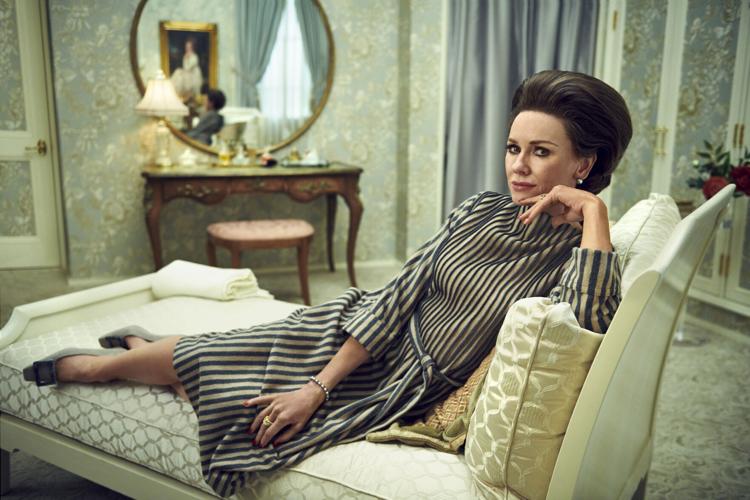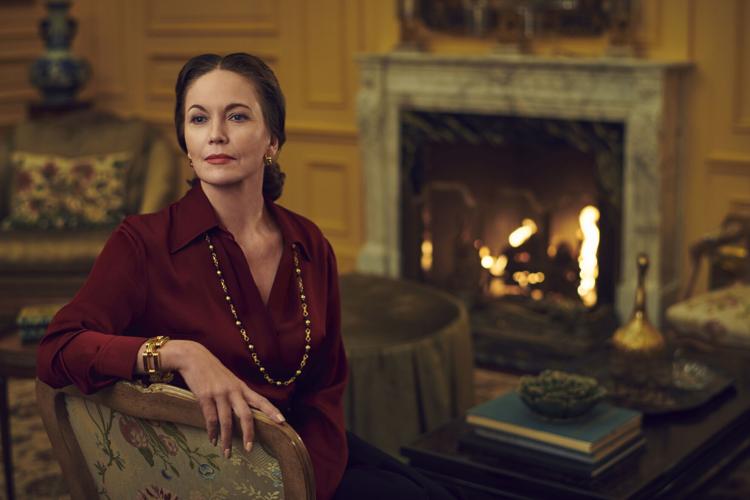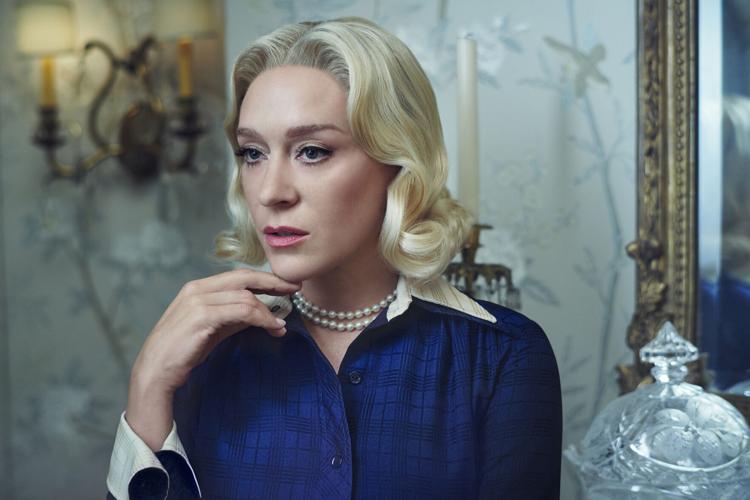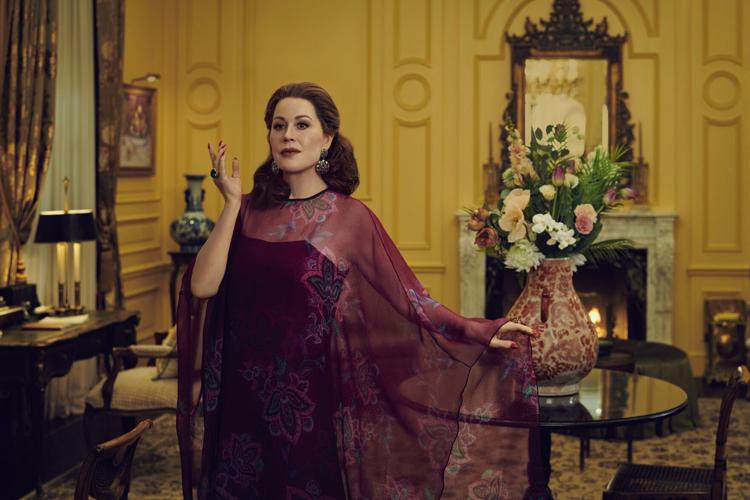Tom Hollander knew he didn’t look or sound like Truman Capote, so he searched for bits and pieces they both shared and tried to meet the character “somewhere in the middle.”
In “Feud: Capote vs. the Swans,” he focused on some of the bigger moments of the author’s story in order to embrace the quieter ones.
“Get the flamboyance and the classic stuff in early so the audience feels reassured that they’re seeing the person they imagined they were going to see and then, later, you can start being your version,” Executive Producer Ryan Murphy told him.
“So there was a sort of strategy there – you’ve got to nail some big moments where he had to be sufficiently flamboyant and then I could find other moments where I could just be listening or doing smaller behavioral things where I was still,” Hollander says.
That “meet in the middle” philosophy helped sustain the performance, particularly when Capote, the author of "In Cold Blood" and "Breakfast at Tiffany's," betrays his society friends and writes a magazine story that exposes their private lives. Constantly worried about his place in their sphere, he tries to convince himself he was right and never bothers to apologize for his actions.
Capote's place
For the women – who included Babe Paley, C.Z. Guest, Slim Keith and Lee Radzwill – he was “a dazzling accoutrement on the dinner table,” Hollander says. “At some level, their vanity was flattered by having him around and him understanding them and listening to them in a way that their husbands weren’t. He was filling a great gap in their emotional lives, and he was brilliant. He was an incredibly entertaining, perceptive, clever, interesting singular man. That’s what they were getting out of (the relationship)…until it went wrong.”
In the 10-part miniseries, writer Jon Robin Baitz and director Gus Van Sant set the scene by showing how Capote had a seat at their table and lost it. He was a serial gossip who loved to drop tidbits about others in their circle. When the article – an excerpt from a book he was writing – appeared, he was effectively banished, which led him into a downward spiral.
“I think it was pretty self-destructive what he did,” says Molly Ringwald, who plays Joanne Carson, one of his last friends. “I don’t think he wanted to lose their friendships, but he (was) a writer. Writers use material from their lives and fictionalize it.”
Carson, she says, was in love with Capote’s genius. “All writers need somebody in their lives sort of saying, ‘You can do this…you’re great.’ I feel like there was maybe a little bit of anger on his part from being a little bit of a court jester.”
Paley (who’s played by Naomi Watts) was probably Capote’s best friend before the split. “When the betrayal occurs, she just comes undone – they all do because they entrusted him,” Watts says. “But for Babe, all the wounds start coming to the surface -- the wounds of her life. So, a lot of big questions come up about the regrets and what her life amounted to…that speaks to a really kind of universal language that we all can relate to.”
Sensing the end
Paley was diagnosed with cancer during the period covered and knew she was facing death. Capote was the person she confided in. “When she shares all of her secrets with Truman, she feels seen and listened to in a deep way,” Watts says. “Her husband didn’t spend enough time appreciating her or really seeing what she needed and wanted.” Not having Capote there when she most needed a friend was almost unthinkable.
Shot during the pandemic, “Feud: Capote vs. the Swans” didn’t give the actors much time to bond. “We were still masked then, we had to eat alone, so we were kept separate from each other,” says Chloe Sevigny, who plays C.Z Guest. “Even in the hair and makeup trailer, we were like six feet apart so the most intimate we were was when we were in La Cote Basque,” the restaurant where the ladies lunched. Conversations took place largely between scenes at the table.
The first influencers
Murphy considers the Swans influencers. “They were victims and also successes of their times,” he says. In an early scene, "Babe has taken a lot of time to get the seating at the table right and make sure Bill (her husband) was next to people that could help his business ventures.”
Adds Watts: “They were uncredited for the work and the amount of time they put into making their husbands’ businesses go well. The resentment builds when the philandering continues.”
Set in the 1960s and ‘70s, the miniseries plays up the constraints that were placed on women in society. “All of those women were so brilliant in their personal lives and so intelligent that I do think, 10 years post, they all would’ve had successful businesses or brands," Murphy says. "I think they would’ve done a Kardashian thing, which is a very brilliant business way of selling an aspirational lifestyle.”
Paley and Keith, he says, were uncredited parts of big business deals. “Frustration and sadness were baked into that time.”
Capote was their cheerleader: “You’re actually smarter than your husbands," he said. "You control everything. All of these lives are because of what you’re doing.”
While Capote never finished the book that caused the rift, he did obsess over its impact.
“He knew at some level he was a tourist in their world,” Hollander says. “And, at some level, they thought he was lucky to be there. So when he turned – or they felt he turned – they were vicious because, ‘From you? You were the adornment in our house. You are not our equal.’ He probably knew that, which is why he writes ‘Cote Basque’ in the way that he does because, at some level, he’s enraged at his own position.”
"Feud: Capote vs. the Swans" begins Jan 31 on FX.








